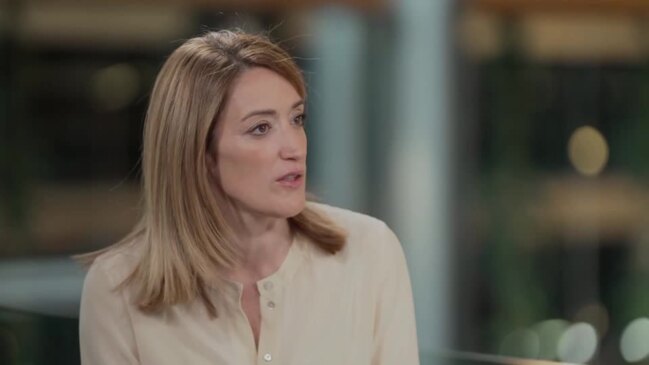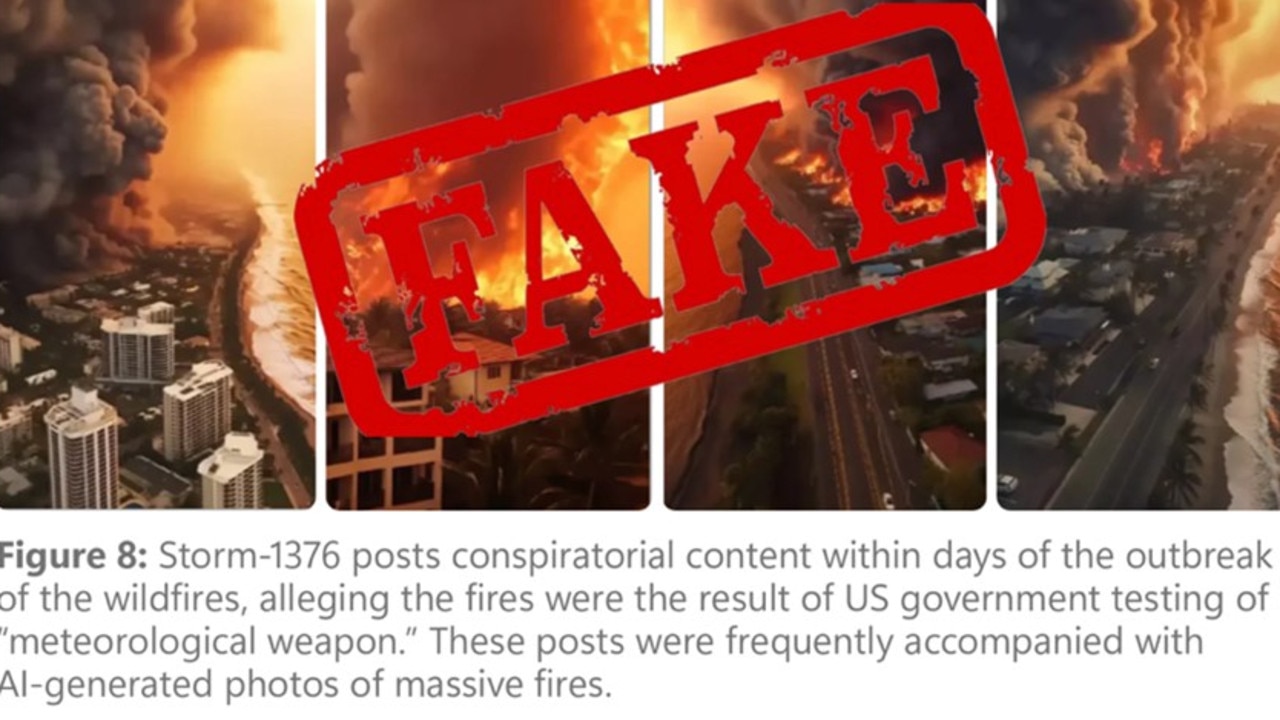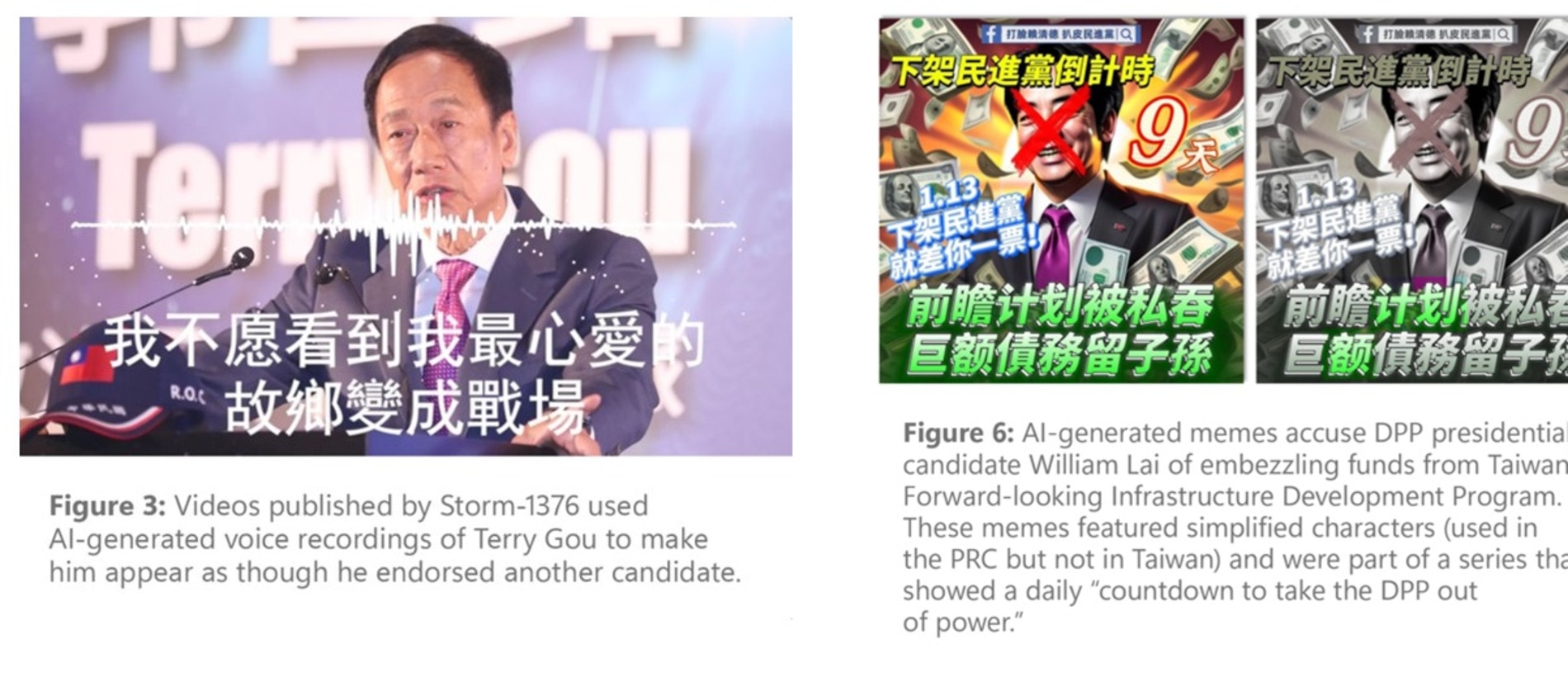How AI turned a Ukrainian YouTuber Olga Loiek into a Russian
Hers is the face that launched a thousand lies. Now, a Ukrainian YouTuber is fighting back against a Chinese-Russian propaganda campaign that has stolen her identity.

Hers is the face that launched a thousand lies. Now, a Ukrainian YouTuber is fighting back against a Chinese-Russian propaganda campaign that has stolen her identity.
“I don’t want anyone to think that I ever said these horrible things in my life. Using a Ukrainian girl for a face promoting Russia. It’s crazy,” says University of Pennsylvania student Olga Loiek.
The 21-year-old established a YouTube channel last year. She doesn’t post videos regularly. But the footage it contains was enough for artificial intelligence software to map her features and generate a virtual clone.
The blonde-haired, blue-eyed sophomore found herself featuring in some 4900 videos across 35 accounts – all promoting the Chinese-Russian alliance and Russian products.

Loiek, whose family is in Ukraine, told the BBC she was stunned to see herself stating things like “It’s sad that other countries are turning away from Russia”, “Russia is the best country”, and “Russian women want to come to China”.
And she was speaking fluent Mandarin – a language Loiek hasn’t learnt.
But while Russia and Chinese operatives may be leading the charge in global deception campaigns, University of Tasmania media analyst Dr Geoff Heriot says it’s attracting a much broader group of users.
“Disinformation is becoming embedded in political cultures within Australia and internationally, exacerbated by ever more advanced generative artificial intelligence (AI) technology,” he writes for the Australian Institute of International Affairs (AIIA).
And he warns it is past time for Australia “to use all tools of statecraft” to protect the value of truth and defend the foundations of our democracy.
“It calls for a whole-of-nation response,” he states.
The pen is mightier than the sword
When a wildfire devastated a Hawaiian community on the island of Maui last year, killing more than 100 people, Chinese-based conspiracy generators swung into action.
Photos of the devastation were manipulated by AI image generators to produce “evidence” that the wildfire was the result of a Pentagon “meteorological weapon” test gone wrong.
Microsoft’s Threat Intelligence unit has warned it has evidence of China using fake social media accounts to explore how to best influence the upcoming US presidential election.

“There has been an increased use of Chinese AI-generated content in recent months, attempting to influence and sow division in the US and elsewhere on a range of topics,” it states, listing significant issues such as a major train derailment, immigration policies and race-based tensions.
The Microsoft unit, established to monitor how its services were being used and abused, says Chinese Communist Party-affiliated social media accounts had “impersonated US voters” during the 2022 US mid-term election campaigns.
But the Taiwanese presidential election in January of this year “saw a surge in the use of AI-generated content to augment IO operations by CCP-affiliated actors,” it adds.


“This was the first time that Microsoft Threat Intelligence has witnessed a nation-state actor using AI content in attempts to influence a foreign election.”
Manipulation targets included election candidates Terry Gou and William Lai. But the identities of many Taiwanese officials and Chinese dissidents were also appropriated.
“With major elections taking place around the world this year, particularly in India, South Korea and the United States, we assess that China will, at a minimum, create and amplify AI-generated content to benefit its interests,” Microsoft concludes.
Falsehood free-for-all
“To date, Australian efforts to counter disinformation and related potential threats (misinformation, malinformation, information warfare) have been piecemeal and reactive,” says Dr Heriot. “This perhaps arises from a false assumption that the problem is a social media issue rather than a structural crisis.”


For the West, it’s a delicate issue.
“Freedom of the press” and “free speech” are deeply ingrained values.
But defamation, false advertising, fraud and maliciously deceptive behaviour are illegal.
Dr Heriot points to an Asia-Pacific Development, Diplomacy & Defence Dialogue (AP4D) paper as offering a potential pathway through this deliberately manipulated political quagmire.
“These range from a resort to hard power regulation, standards setting and enforcement mechanisms, through to societal interventions such as support for diaspora communities, media literacy campaigns, public interest journalism, and engagement with media in Asia and the Pacific,” the former ABC executive writes.
And the Pacific, according to Microsoft, is among China’s highest priority deception battlegrounds.
Beijing, it says, “has doubled down on its targets and increased the sophistication of its influence operations (IO) attacks. These priorities are: The South Pacific Islands, the South China Sea region, and the US defence industrial base”.
The AP4D paper also recommends a new national body that “identifies and pre-empts emerging problems in the information environment and marshals resources and expertise to find solutions.”
“This national body could also perform an international liaison function,” Dr Heriot states, adding that precedents can be found among “counter-propagandists from the Cold War era”.
Cognitive warfare
Last month, China’s military created a new military Information Support Force (ISF).
Chairman Xi Jinping, who officiated at its creation ceremony, stressed the creation of a “world-class army” for an era where information and perception are central to combat operations.
“Cognitive warfare, such as propaganda using radio broadcasts and deception through the dissemination of disinformation, is hardly a recent phenomenon, but the PLA’s focus on it follows developments in technology that greatly enhance its effectiveness,” argues Japanese National Institute for Defence Studies IIDA Masafumi.
He points out that combining deepfake and automatic translation AI technology – such as in the case of Olga Loeik – has opened up a broad new realm of personalised, targeted deception.

“The societies most vulnerable to cognitive warfare are those that are free and open,” Masafumi warns. “Democracies must remain vigilant against attempts to promote social division and destabilise politics, developing systems and technologies to counter any such attacks.”
While the new Chinese Information Support Force is tasked mainly with defending China’s communications infrastructure, it has also been assigned the Third Department of the Communist Party’s Central Military Commission.
This is a specialist cyberspace espionage and “technical reconnaissance” unit.
“There is a growing expectation in the PLA (People’s Liberation Army) that these technologies make it possible to win an edge with cognitive warfare, perhaps even avoiding physical combat,” Masafumi states.
Originally published as How AI turned a Ukrainian YouTuber Olga Loiek into a Russian





